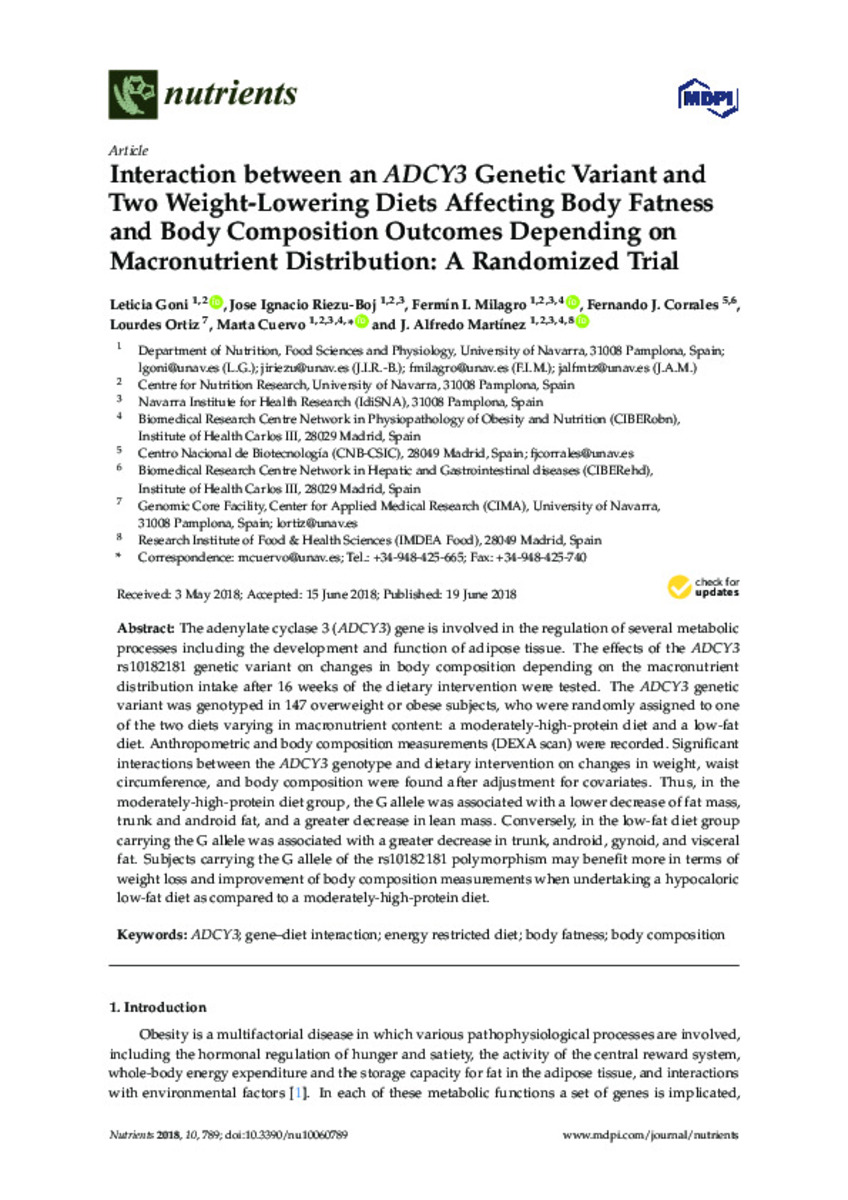Interaction between an adcy3 genetic variant and two weight-lowering diets affecting body fatness and body composition outcomes depending on macronutrient distribution: a randomized trial
Keywords:
ADCY3
Gene–diet interaction
Energy restricted diet
Body fatness
Body composition
Note:
This article is an open access
article distributed under the terms and conditions of the Creative Commons Attribution
(CC BY) license (http://creativecommons.org/licenses/by/4.0/).
Citation:
Goni, L. (Leticia); Riezu-Boj, J.I. (José Ignacio); Milagro, F.I. (Fermín I); et al. "Interaction between an adcy3 genetic variant and two weight-lowering diets affecting body fatness and body composition outcomes depending on macronutrient distribution: a randomized trial". Nutrients. 10 (6), 2018, E789
Statistics and impact
0 citas en

0 citas en

Items in Dadun are protected by copyright, with all rights reserved, unless otherwise indicated.









